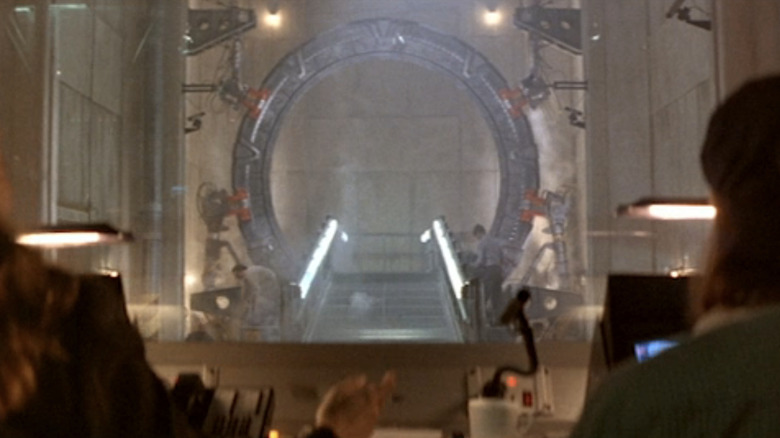Movie Reviews
Roger Ebert Had An Extremely Harsh Review For A Classic Kurt Russell Sci-Fi Movie – SlashFilm
Throughout his illustrious career, Roger Ebert had several surprising takes on unlikely movies. He gave a perfect score to controversial sci-fi film “Prometheus” and bestowed a similarly flawless score on a mediocre Samuel L. Jackson crime thriller. On the other end of the spectrum were the films for which the critic reserved his most acerbic opprobrium. Ebert absolutely hated a forgotten Clint Eastwood gangster movie, which he labelled a travesty. Frankly, that assessment of 1984’s “City Heat” was probably a fair one, but he proved he could be equally as caustic ten years later when he took down Roland Emmerich’s “Stargate” movie.
Written by Emmerich and Dean Devlin, “Stargate” starred Kurt Russell as United States Air Force Colonel Jack O’Neill, who’s placed in charge of mysterious stones uncovered in Egypt bearing hieroglyphics that refer to the titular portal — a device that allows travel between two points in the universe. After Egyptologist Daniel Jackson (James Spader) figures out the meaning behind the markings, he, O’Neill, and a team of explorers pass through the Stargate to the desert planet of Abydos, where they end up trapped after Jackson fails to find the right markings to send them home. Making matters worse, their space excursion has led them to a world ruled over by the despotic Ra (Jaye Davidson), an alien who visited Earth during the time of the Ancient Egyptians, adopted their customs, and enslaved large swathes of their people. The rest of the film sees O’Neill and his crew fighting for their survival and a chance to return back through the Stargate to Earth.
Despite receiving mixed reviews from critics, “Stargate” was a commercial success, grossing $196.6 million worldwide on a budget of $55 million. Unfortunately, Roger Ebert liked the movie about as much as “City Heat.”
Even Kurt Russell didn’t want to star in Stargate at first
When Roland Emmerich signed on to direct “Stargate,” he likely had no idea it would create a sizable media empire. The “Stargate” franchise now comprises multiple TV series, direct-to-home-media movies, comic books, video games, and novels. But in the early ’90s it was just an idea in Emmerich’s head. Inspired by the 1970 documentary “Chariots of the Gods,” which suggested that aliens were responsible for creating civilization, Emmerich joined forces with Dean Devlin to develop the lore of the “Stargate” universe and write his movie. Eventually, the pair secured funding from Canal Plus and set about casting, but it took some time to get Kurt Russell onboard.
Devlin told Variety that the actor actually turned down the movie initially. It seems the “Escape from New York” star wasn’t a fan of the script, which, it was later revealed, was an early version that shouldn’t have been sent out. Once the producers sent Russell an updated screenplay and upped their salary offer, the movie had its Colonel Jack O’Neill (who would eventually be played “MacGyver” star Richard Dean Anderson in the TV series continuation “Stargate SG-1”). As Devlin recalled, “When he actually saw the shooting script he went, ‘Oh, this isn’t so bad.’”
Sadly, Roger Ebert didn’t feel the same. When the movie finally debuted in October 1994, the critic was merciless in his assessment, writing, “The movie ‘Ed Wood,’ about the worst director of all time, was made to prepare us for ‘Stargate.’” What was the critic’s issue with “Stargate?” Well, he has several, and kicked off a long-running feud between he and Emmerich with his review.
Roger Ebert thought Stargate was a series of action movie cliches
“Stargate” was by no means a critical disaster. At the time of writing, it has a 53% rating on Rotten Tomatoes and managed to impress several critics with its special effects. It was, on the whole, seen as a bit of mindless blockbuster fun, but Roger Ebert, wasn’t having any of it.
The critic didn’t let Roland Emmerich get away with anything, pointing out every single plot hole and inconsistency in his takedown of “Stargate.” According to Ebert, this was “the kind of movie where a soldier can be transported to ‘the other side of the known universe’ in a whirlpool of bizarre special effects, step into a temple on an alien planet, and say, ‘What a rush;’” “the kind of movie where the sun god Ra, who has harnessed the ability to traverse the universe at the speed of light, still needs slaves to build his pyramids.” Ebert wasn’t won over by any part of the movie, giving “Stargate” one star and proclaiming it to be “lacking in any sense of wonder” and “like a film school exercise. Assignment: Conceive of the weirdest plot you can think of, and reduce it as quickly as possible to action movie cliches.”
“Stargate” was the beginning of Emmerich and Dean Devlin’s working relationship, with the pair going on to collaborate on 1996’s “Independence Day,” 1998’s “Godzilla,” 2000’s “The Patriot” and 2015’s “Independence Day: Resurgence.” But “Stargate” also marked the beginning of an infamous feud between Ebert and Emmerich, with the former criticizing “Independence Day” leading Emmerich to take a swing at the critic by including a Mayor Ebert parody character in “Godzilla.” Ebert and fellow critic Gene Siskel then summarily trashed the film.
